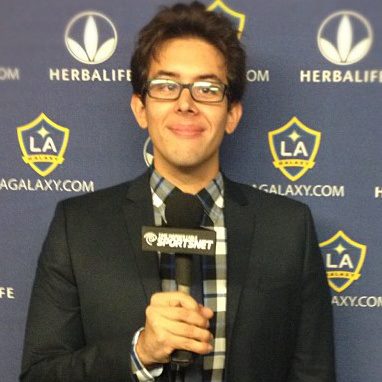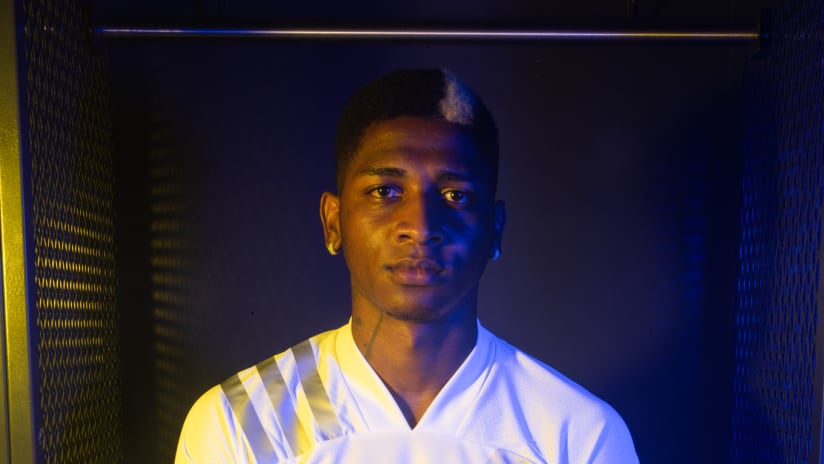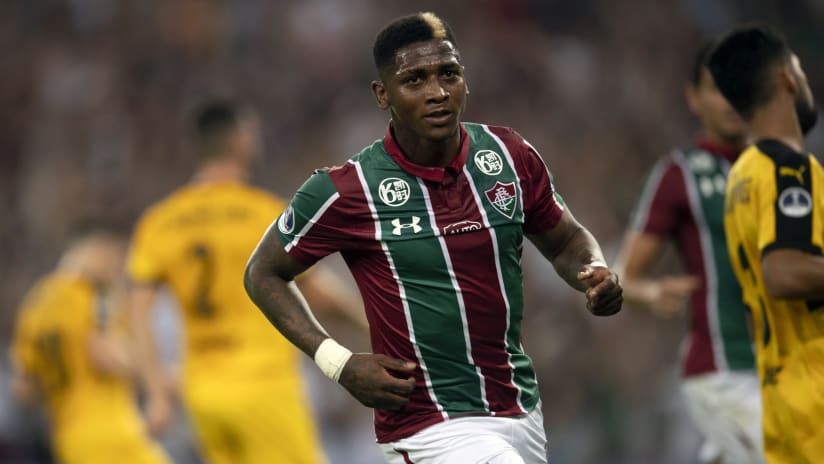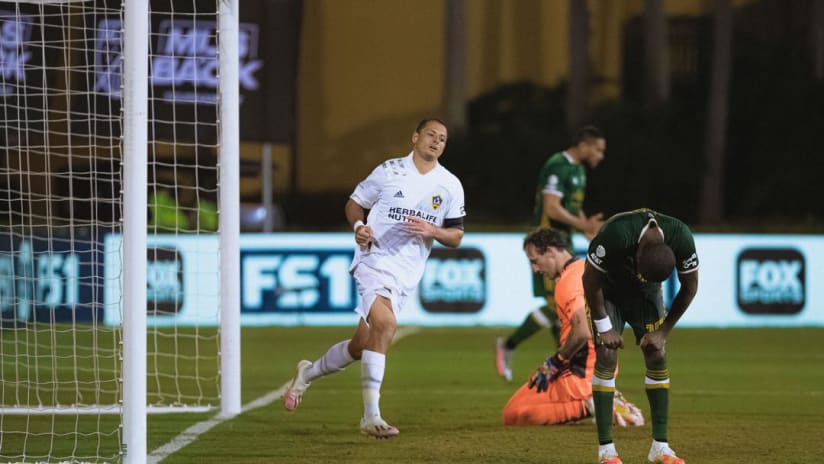CARSON, Calif. -- On Tuesday, the LA Galaxy made a splash adding Brazilian forward Samuel on a year-long loan from Brazilian side Fluminense.
To learn a bit more about Samuel and his background with Fluminense, I spoke to Jack Lang, a noted Brazilian soccer specialist who has written about the nation's soccer culture for many publications including ESPN, Yahoo and Eurosport.
My conversation with Lang is below.
LA Galaxy Insider: How would you describe Samuel as a player? He tallied just 15 goals in 72 games for the club over a two year period.
LANG: He's a number nine who can lead the line alone or combine with a partner. Much was expected of him after he graduated from youth football, but he hasn't yet hit the heights – as his record illustrates. He did well coming into the Fluminense side as a relative unknown in 2012, netting a few goals, but things were trickier for him in 2013. When Brazil striker Fred picked up an injury midway near the start of the Brazilian season, Samuel was thrust into the frontline and expected to perform a similar role. But he never got to grips with the job, scoring just once after May.
Admittedly he wasn't starting week-in, week-out - but that further underlines the point that he didn't manage to make the position his own. Hopefully the move to LA Galaxy will help him rediscover his confidence and form.
LAGI: During the last year, he's been linked with a number of big clubs in Spain from Espanyol to Real Madrid B, do you feel like this interest may have hindered or aided his professional development?
LANG: It probably didn't help. Brazilian youngsters often have their heads turned by European interest early in their careers, so they begin to dream big before even establishing themselves. Some knuckle down but countless others have drifted into mediocrity on a wave of misplaced ambition. I don't know whether Samuel was one of the latter group, but you'd imagine he will have been brought back to earth by his middling form in 2013.
LAGI: The scuttlebutt on Samuel is that he's been described a talented player but one limited speed wise. Is this a fair assessment?
LANG: I would say so. He's certainly got attributes that will help him plunder goals: he has good anticipation, for instance, and is great in the air. He's also a tidy finisher with both feet. But he's certainly not going to win any prizes for pure athletics; he often looks a touch leaden-footed and isn't one to speed past his marker.
LAGI: Fluminense was nearly relegated a year ago after their poor showing, what's the current state of the club at the moment?
LANG: They had a turbulent 2013, to say the least. Champions in 2012 (their second title in three years), they looked to be ushering in a bright new era on the back of funding from medical insurance giant Unimed. They had invested in proven talent (Fred, Thiago Neves, Deco) new training facilities, while coach Abel Braga was making all the right noises about building a dynasty.
But things went awry. Braga was dismissed in July after five consecutive defeats. His replacement, Vanderlei Luxemburgo, also struggled, leading the side to just seven wins in 26 games. Fred's injury didn't help, while their once-solid defence went missing too often.
They were actually relegated in the final week of the season, only to earn a controversial reprieve in the courtroom. It turned out that Portuguesa had fielded an ineligible player in their last game, and the Brazilians sports tribunal saw fit to dock them just enough points to save Flu's skin. They may have retained their top-flight status, but the side Samuel is leaving behind is unlikely to be too popular among neutrals for the foreseeable future.
LAGI: Several Brazilian players are currently flourishing in MLS, what's the perception of the league in Brazil and the U.S. National Team?
LANG: It's still viewed as something of a novelty by some – a league with the financial power to lure players away (like Middle Eastern leagues often do) but not one with any great footballing gravitas. That's clearly a fairly outmoded view, especially as the MLS trumps the Brasileirão in many ways: bigger attendances (in the last few years at least), better organisation, more advanced commercial streams.





